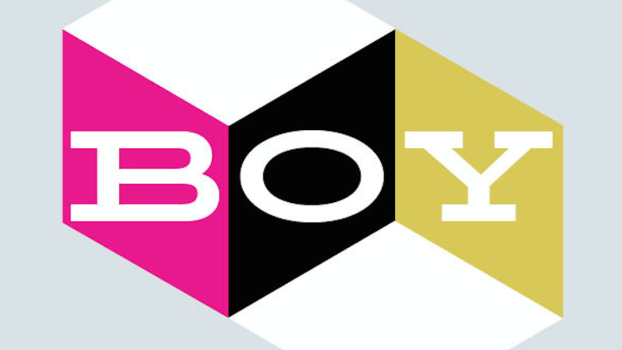It’s hard to overstate the impact the COVID-19 health and economic crisis has had on employment numbers in Canada. According to Stats Canada, the country lost two million jobs in April alone. However bleak the numbers seem, it appears that many large employers, including the Canadian arms of PepsiCo, P&G and Unilever, have weathered the worst of the storm when it comes to what they consider a critical piece of their talent strategies: onboarding interns and recent grads from some of the top business schools in the country.
All three companies have adopted work-from-home measures and are now recruiting and onboarding students virtually. In some cases, start dates have been delayed and placements shortened. But both the businesses and business schools interviewed for this story report demand for new talent remains high. And for some students, the pandemic may have even opened up new career development opportunities.
This summer, Unilever will welcome 12 interns across marketing, customer development and finance – a number that is in line with previous years, according to Kristen Hunt, talent advisor lead at the company. Unilever is now recruiting for the fall term, a process it intends to manage virtually, and is on track to place students in finance and customer development (which includes new product and category development and retail and shopper programs).
Meanwhile, P&G’s internship program remains central to its recruiting strategy and a primary source of entry-level talent, says Jane Lewis, VP of human resources at the company. Early this month, it onboarded more summer interns across marketing, sales, IT, product supply and finance than it did a year ago. “This has been a great opportunity for us to innovate and learn in this space, and [there] continues to be a shared effort between managers, teams and interns themselves to create a rewarding virtual summer experience.”
And, according to Logan Chambers, co-leader of PepsiCo Canada’s marketing campus recruitment team, a total of eight students (between its Food and Beverages divisions) started in May and will intern in marketing roles this summer – a number on par with the six-to-eight students typically accepted for the term. (It usually accepts fewer students during the fall and winter sessions, due to the number of schools offering internships at that time).
Logan says PepsiCo is handling internships as “an extension of what we’ve been doing across the entire business.” Interns were mailed laptops, and regular virtual check-ins ensure the new recruits feel integrated into their teams. “We’re very conscious of what they’re going through, and we’re putting extra effort to talk to them, reaching out to them, having virtual chats.”
On the academic side, Marie-José Beaudin, executive director of career services at McGill University’s Desautels Faculty of Management, says the pandemic has not significantly changed the placement process, except employer information sessions and interviews are now taking place through virtual platforms.
McGill has placed roughly the same amount of interns as last year (with many finding jobs before the outbreak began). While some placements have been delayed or shortened, she says the “vast majority” of employers have honoured their commitments. In fact, many have posted new internships and contracts since the end of March, and the school has since “ramped up outreach efforts to employers in sectors positively impacted by the pandemic.”
“There seems to be more of an impact on full-time roles than on internships at the moment,” says Beaudin. “This may be because employers are more comfortable offering shorter contracts as we see how the economy will be impacted.”
Matt Reesor, director of the MBA program at Queen’s University’s Smith School of Business, says the popularity of MBA programs are usually counter-cyclical to the economy and that enrolment numbers for next year’s program (beginning in January) have gone up. “Applicants see this as a good time to skill up and make themselves more competitive in the job market.”
Smith offers a one-year, full-time MBA program that runs from January to December, and as such, does not include an internship – with the goal of getting graduates back into the workforce in a paid role as soon as possible. Instead, candidates explore career options in the summer and participate in on-campus recruiting in the fall.
Karen Jackson-Cox, executive director of Smith’s career advancement centre, says corporate registration for fall recruitment launched two weeks ago, and while there are “encouraging signs,” many companies are waiting to see how the university landscape will change (for example, whether teaching will take place online or in person) and are assessing their business forecasts for full-time graduate opportunities.
For now, Jackson-Cox says the school is conducting regular recruiting sessions virtually, through panels, roundtables and coffee chats. In addition to hosting student-employer sessions through Zoom and other platforms, Smith recently purchased its own online event platform, called SmithNow, that it will use to offer an enhanced networking event in June.
“Students are being encouraged to have a proactive, agile approach in leveraging their transferable skills [and] expanding their search more broadly to growth industries and functions,” she says. “We are asking them to think beyond plans A and B.”
But onboarding students and recent grads is only the first step in helping organizations ensure their talent pipelines remain strong.
As Chambers points out, Pepsico’s internship program is designed to identify talent and help bridge individuals full-time following graduation. But in order for that to happen, candidates must be trained as effectively as they would be in person; they must be given the opportunity to experience PepsiCo’s organizational culture; and managers and interns must be able to evaluate each other for long-term fit.
“How do you keep them involved in the company culture?” he says, giving the example of a student currently working from her home in Victoria. “Not only virtually, but also with the time zone difference?”
Despite the challenges, the schools see potential advantages.
Jackson-Cox says virtual recruiting has created efficiencies, such as eliminating the need for relocation and travel, and that companies may find it easier to recruit talent globally, creating a more competitive job market.
“The students have become pros at connecting virtually,” adds Beaudin. “[They are] learning how to adapt to new and remote work environment.”
This article is part one of a C-Suite mini-series focused on talent and career development within marketing departments. Next week, strategy examines the issues of up-skilling and career advancement during the pandemic.
Photos courtesy of PepsiCo Canada.

























